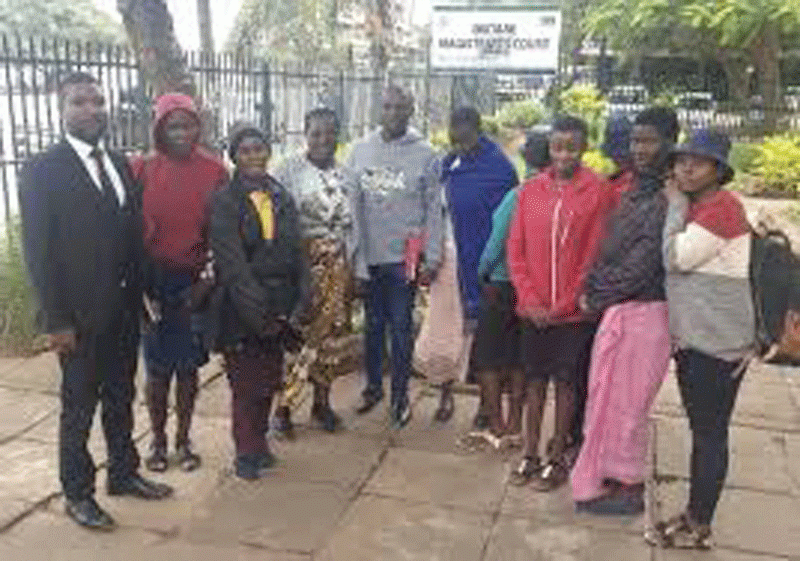
Last week I visited a new eating-place and casually tried to ask someone who is part of the establishment more about the concept of the place. I thought the place was okay and the food was fine and wanted to write about the atmosphere but obviously with news of the indigenisation law tormenting businesspeople, I realised in hindsight it was not very prudent for a black woman to ask a white person about their business.
I got a rude, shrilly and frightened response that I am still trying to piece together. I am simply a curious person but who can blame the woman? There are so many people out there just waiting for a piece of the black empowerment action. At times an introduction and speaking softly does not always work with some people.
It is on such occasions when I feel we should come into this world armed with a huge volume of a book on how to communicate and how to navigate issues that scare us.
On my mind is also the story of the prostitute who got electrocuted at a client’s house.
I know we do not like discussing issues that make us uncomfortable. MDC-T legislator Tabitha Khumalo is determined to get prostitution legalised. We all do not have to agree with her but we should listen to her reasons and debate them.
I think it is daft that the electrocuted woman’s parents want the client to pay lobola. I understand in the flesh peddling business you get your payment first and then dish out the goods. The guy paid for a service and that the woman ended up dying is just unfortunate. The two had a standing arrangement — a business deal. If the man had marriage on his mind he would never have entered into a pay-as-you-go scheme.
Prostitution exists and flourishes because there is a demand for it. We might not like the women who work as prostitutes but what they do with their bodies is their concern. If there were no takers the women would be out of business.
What we should worry about is their protection. If this were a legal occupation, the woman’s relatives would be claiming “workmen’s” compensation. A pension would be paid out.
- Chamisa under fire over US$120K donation
- Mavhunga puts DeMbare into Chibuku quarterfinals
- Pension funds bet on Cabora Bassa oilfields
- Councils defy govt fire tender directive
Keep Reading
We worry about HIV and Aids and blame prostitutes for spreading it but we stubbornly refuse to accept the mere fact that prostitution is not going to end anytime soon. It will be with us for a very long, long time.
We are God-fearing people and we use the Bible to support most of our arguments but we also need to be realistic about life. What we want is not what we always get and how we would like our world shaped is not how it is.
Some developed countries have legalised prostitution and closer to home Botswana is discussing it. And we all know that our neighbours in Botswana are very traditional. But, they are waking up to the reality of ignoring issues in the hope that they will die out. They never do, they simply fester.
Arguments advanced in favour of legalising prostitution include getting them to pay taxes and ensuring that they have health insurance. In countries where prostitution is legal, those in the trade undergo regular medical check-ups, are encouraged to practise safe sex and are protected by the law from abuse and violence.
In an ideal world we would all like to wake up one day and find our world clear of sin but while we pray for that, we need to be practical about some of the problems life presents us.
What advantages would it be to our national health budget if that group of people most at risk of getting infected with HIV and Aids were to readily get medical help? How would it also affect our own marital relations?
Some married men regularly pay for sex and other men who are still single do so too while waiting to find Mrs Right. They get the services and at times end up bringing home a disease present to the missus. We might look at the issue of legalising prostitution as sheer madness but is it not better to control how and where it is done?
Our Christian background will tell us it is wrong but is it not better to ensure our “lost” sisters are safe and then we can pray for their salvation? Condemning people because you do not feel comfortable about who they are does not solve anything. It will not help us to pretend we do not have a problem on our streets.
More and more young women are taking to prostitution. Some are forced by circumstances but I have spoken to some who like it and others enjoy the power it gives them. You can call prostitution a cancer but do more than that.
Join the team that wants to find viable solutions. Who knows, we might discover that in the end the country does not even need to legalise the world’s oldest profession!
BY GRACE MUTANDWA











